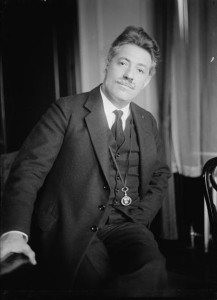Tchaikovsky, Song Without Words, Op. 2, No. 3
Mendelssohn wasn’t the only one to write “songs without words.” Another Mendelssohn wrote piano works under this title: his sister Fanny Mendelssohn Hensel. (Some say it was she, in fact, who gave Felix the idea.) Tchaikovsky also wrote some short character pieces for piano under this title. His Souvenir of Hapsal, Op. 2, a collection of three short works for piano, concludes with one of these.

AllMusic describes it as Tchaikovsky’s first hit tune. That description drives home the point made last week that these songs without words were short, lyrical, and immediately appealing. Tchaikovsky wrote this work in 1867 while visiting the Estonian seaside spa town of Hapsal.
Fritz Kreisler (1875-1962) arranged Tchaikovsky’s work for violin and piano. The Austrian-born Kreisler grew up in the company of people like Johannes Brahms and Sigmund Freud. He became the youngest student ever, at age 7, to enter the Vienna Conservatory, but he always had an aversion to practicing. Perhaps his interests were too wide-ranging. He dropped out of music for a while to study medicine, and also enlisted in the Austrian army—twice. (He was drafted a third time.) He later said in an interview, “I had some very weird thoughts about my future career. I envisaged myself operating on a patient in the morning, playing chess in the afternoon, giving a concert in the evening, and (in anticipation of a glorious military career) winning a battle at midnight.”
He didn’t achieve all that, but he did become one of the most famous violinists of his time, and he made violin arrangements of the works of many composers. A violin-piano arrangement seems like the perfect combination to highlight the singing lyricism of this work.



